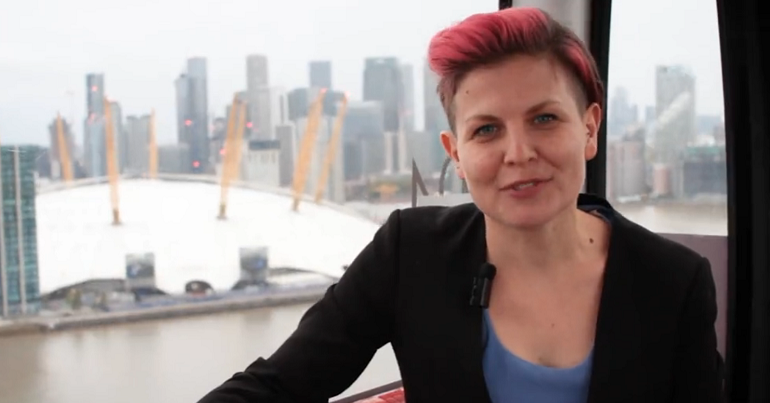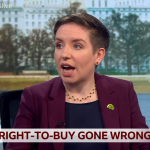A call for a Tenants' Movement
Housing is one of the defining issues of our generation. Not only have sub-prime mortgages triggered a financial crisis that has led to high unemployment and austerity measures, but it’s also becoming more difficult to find a decent and affordable place to live.
With social housing in short supply, and many people priced out of buying a property, an increasing number of younger adults are living in the private rental sector. Private renting has exploded in recent years, and it comes with a specific set of problems: it provides no long-term security, and many tenants face problems with landlords who refuse to carry out repairs, or withhold deposits unfairly. Those who complain can be threatened with eviction, or even violence, but the huge upfront costs of taking on a new tenancy make it difficult for those on low incomes to move away from a bad landlord.
If you’re under thirty, this will be old news. Even if you haven’t had problems with a landlord yourself, you will almost certainly know people who have, and you can only hear so many horror stories before you start to wonder why this keeps on happening to so many people. How many bad apples do we need to find before we ask whether there might be something wrong with the barrel?
The checks and balances that are supposed to ensure a basic standards in rented housing simply do not work. Demand is so high that landlords don’t have to compete on price or standards in order to stay in business (37% of privately rented properties in England are classed as being in a “non-decent” condition, compared with 25% of owner-occupied properties, and 20% of social housing). And while the compulsory landlord registration schemes run by local authorities may have got most of the law-abiding landlords to sign up, they have failed to deter the worst landlords from operating illegally. In Edinburgh, the council have even allowed one landlord to stay on their register after he was given a criminal conviction for threatening to have a tenant shot.
It’s clear that if private tenants want anything to be done about these widespread problems, then we are going to have to do it ourselves. This is why Edinburgh Private Tenants’ Action Group (EPTAG) has been set up to campaign for better standards in privately rented housing, and for the enforcement of laws which are supposed to protect tenants. So far, the response has been overwhelmingly positive – tenants want to get involved because they see that there’s a need to do something – which is important, because the strength and safety of numbers will be vital to the campaign.
Individual tenants can only do so much when faced with a problematic landlord. Of course it helps to know your rights, but if the landlord in question doesn’t care about the law, then knowing that he or she is in the wrong won’t make much difference. However, if a group of tenants takes coordinated action, it’s a different story. The American community organiser Saul Alinsky, used a hypothetical conversation with a slum tenant to illustrate this point:
What would happen if you didn’t pay your rent? ‘What would happen? They’d throw me out, my kids and everybody else. What do you mean?’ What would happen if no-one paid their rent over there? ‘Well they’d – Jesus, they’d have a lot of trouble throwing us all out, wouldn’t they?’
A rent strike might be a bit extreme as a first response, but it’s not the only tactic available to us. We can share useful information about how to deal with your landlord effectively: in Edinburgh, most letting agencies to charge fees which are illegal under Scots Law, so EPTAG have produced a guide to claiming your money back. We can organise direct action against the worst landlords, like Glasgow Solidarity Network did a few weeks ago, when they staged a demonstration against a letting agency which had charged some of their members fees – they received a full refund in the post four days later. As well as targeting landlords and agencies, tenant actions could also be used to pressure councils into providing more effective enforcement of the sector, by showing just how badly they’re letting down their constituents.
We might be accused of trying to hold landlords to ransom, but that’s hardly a justified response – landlords have been holding us to ransom for years, and all we’re trying to do is help tenants take back some control of their situation. Private sector renting used to be far better regulated: rent levels were controlled, and tenants had long-term security in their housing; but since the late 1980s, those protections have been replaced with the belief that a free market would regulate itself to everyone’s benefit. This hasn’t worked, and it’s time that we started clawing back the protections that were lost under the Thatcher and Major governments.
There are several million households in privately rented accommodation in the UK, many of whom don’t have the option to live anywhere else. A few of us have already shown that when we work together, we can get results; so what would happen if all of us stood up for our rights together?
EPTAG are holding a public meeting on Thursday 8th March at 7pm in Old St Paul’s Church Hall. If you live in the area, come along; if you live somewhere else, start your own tenants’ group.




Great article. Interesting action in Glasgow – funnily enough, it was the Belfast branch of Martin & Co that messed me around so much that actually got me interested in tenant’s rights in the first place, inspired me to run for VP Welfare at Queen’s SU and as a result we’ll finally be opening our ethical lettings agency, SU Lets, next month. A tenant’s association is badly, badly needed in NI.